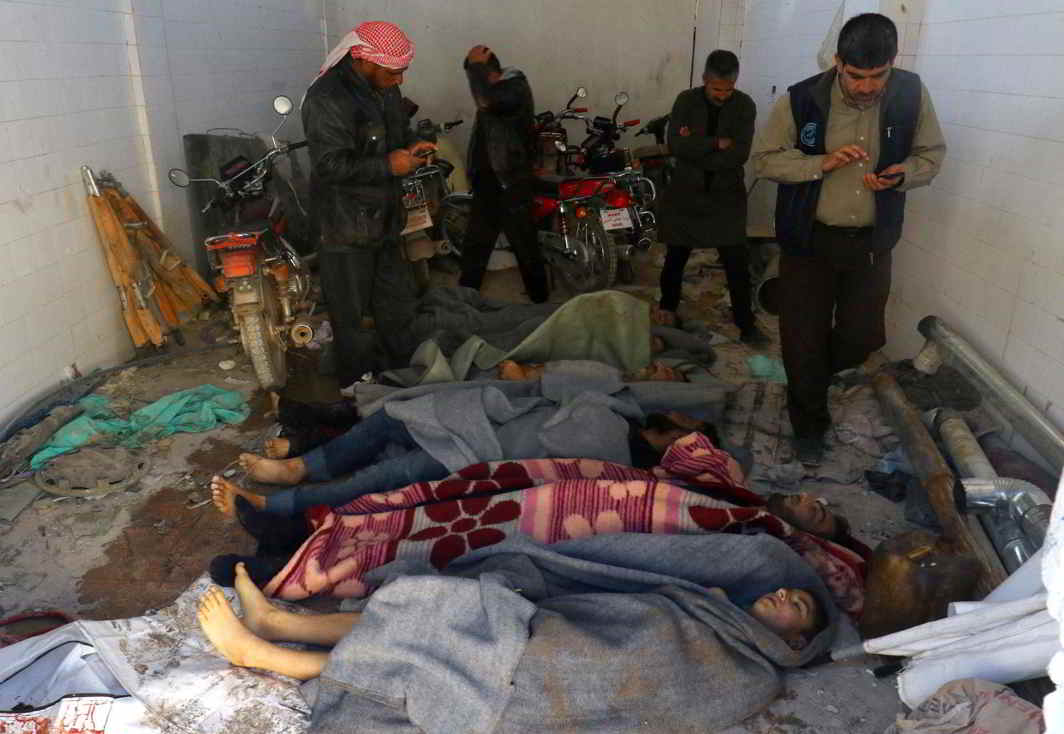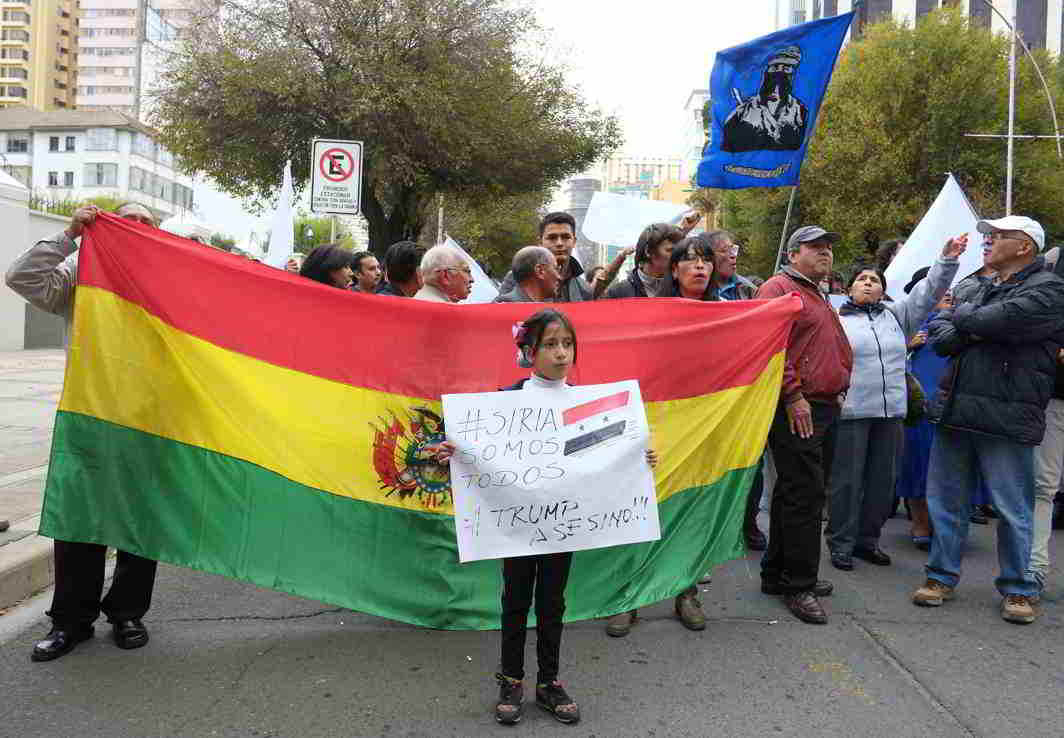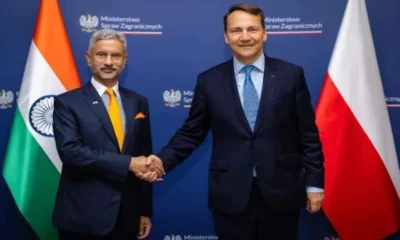[vc_row][vc_column][vc_column_text]The friendship with Putin is over for now as the US president makes a policy turnaround and bombs Syria, post the deadly chemical attack there by the Assad government
By Sujit Bhar
Those were the days when former US President, Peace Nobel Laureate Barack Obama, so badly wanted to bomb the Syrian regime of Bashar al-Assad. He thought it would be a cool idea to help the ‘rebels’, who were sometimes closing in on and sometimes being bombed by Assad’s forces, by providing strategic air support. Of course, he never thought about boots on the ground.
He sent the planes soaring, and it was then that somebody drove a different type of sense into him: The banned militant group of Muslim Brotherhood had mingled with the rebels and was aiming to drive up Assad’s lawn. Helping the ‘rebels’ would also mean helping this banned group of extremists, giving rise to more problems for the Middle East, the US and for the world.
The fighter jets were ordered back.
Then, shocking the world, Donald Trump assumed the presidency of the US. A known Vladimir Putin admirer and Russia backer, Trump had courageously set his eyes away from Syria. “See no evil,” he said.
But good times never last. Assad had to go and use the deadly Sarin gas on his people, killing at least 85 in the rebel-held town of Khan Sheikhoun on April 4. Trump, of course, is educated on the evils of chemical weapons, and how even the children—at least two dozen of them—had to suffer immensely, till their bodies were paralysed and their diaphragms collapsed before they died. It was too much, even for Trump.

DASTARDLY ACT: Men gather near bodies, after a suspected gas attack in the town of Khan Sheikhoun in rebel-held Idlib, Syria, by government forces
Sarin is a banned chemical agent and the world’s Sarin stores are being destroyed. Except Assad’s.
In a matter of 24 hours, Trump had made a 180-degree turn and ordered a missile strike against Assad. US destroyers USS Porter and USS Ross, stationed in the eastern Mediterranean Sea, fired 59 Tomahawk Land Attack Missiles, wreaking havoc within the Assad administration. That possibly indicated the end of the US’s hands-off policy in the region.
The Pentagon has reportedly said that the missiles targeted “aircraft, hardened aircraft shelters, petroleum and logistical storage, ammunition supply bunkers, air defence systems, and radars” located at the al-Shayrat airbase in Syria. This was the first time since 2011, when the Syrian civil war began, has the US taken direct action.
The problem with firing missiles into any populated region is that it also delivers collateral damage, one reason why the US had the hands-off policy in the first place. Now a Syrian news agency reports that nine civilians, including four children, were killed in the strike. There is nobody to verify if those people were actually in the vicinity of al-Shayrat airbase during the strike. But bad news, even if it is fake, does travel fast.
US intelligence, according to reports, had believed that the al-Shayrat airbase was used to launch the chemical attacks. And Trump’s official response did little to dispel doubts of local tragedy. His statement, issued from his Mar-a-Lago holiday estate, said: “Tonight, I ordered a targeted military strike on the airfield in Syria from where the chemical attack was launched. It is in the vital national security interest of the United States to prevent and deter the spread of chemical weapons.”
That didn’t seem concomitant with general US foreign policy of “protecting” the weak around the world. While it was nearer Trump’s stated position of “protecting the interests of America”, what American interest in a distant airfield these strikes were protecting would be difficult to explain.
So why is Trump scared of assuming a position of strength, in admitting America’s “tradition” of spreading foreign policy throughout its administrations, including its defence and security establishments? Media reports points at his “narrow” thinking, which fails to realise a broader perspective and of greater good.
However, there could be another reason: Russia.
The Trump administration has been in jitters through its connections with Russia and America’s bogeyman Vladimir Putin, president of that Republic. Russia, Assad’s protector, has reacted angrily despite the Pentagon’s pre-strike information to Russia “using its established ‘deconfliction channel’”, as per reports in the media.
But Putin has come out and said the strike was “aggression against a sovereign state in violation of the norms of international law”. Tongue-in-cheek media reports have quoted Russian news agency Sputnik, which quoted Kremlin spokesperson Dmitry Peskov as saying that the Russian president thinks this strike was under a “trumped-up pretext”.
Two things emerge. First, Trump has to stick to his stance on Assad. It is understandable that he can well turn around tomorrow and call Assad a good boy. But he has to strike a balance between what he does and what he says, as well as with how he wants to treat Putin.
Secondly – and this can go to Trump’s advantage – Putin may cry himself hoarse over bombing a sovereign nation, but he cannot, in civil society, condone the use of Sarin gas on innocent civilians, especially children. That jeopardises his position around the world.
Technically, while Trump would be on a diplomatic high from these attacks – Democrats would find it hard to find fault in this, especially when Obama failed to take any proactive stance and action on Assad—he could also be pressured from his early view of Putin.
The Cold War seems to have been revived, albeit through a back door.
According to a Pew Research Center report of January this year, when people were asked how much confidence they had in Putin to do the right thing in world affairs, the general trend in Western Europe was an upward one. France was up at 20 percent positive, UK at 20 and Germany and Italy both at 31. These figures have risen sharply since 2016.
On the other hand a March Gallup poll found that Trump’s job approval rating had slumped to 37 percent. It said that 58 percent of Americans didn’t like his presidency.
Not that such polls really make any difference to overall world geopolitics, but if Trump has to take the Congress’ green light for further spending on defence production (he wants a $ 30 billion raise), he will have to play a bit of the game by their rules. Executive orders may try and ban entry into the country (even that the courts have not agreed to), but they surely do not fetch funding from the treasury.
So Trump finally has blood on his hands, and when the Putin towel isn’t around to wipe it on, he will have to learn to live with it. Diplomacy at the top level can’t always be about pontificating from Trump Towers.[/vc_column_text][/vc_column][/vc_row]


 India News17 hours ago
India News17 hours ago
 Latest world news17 hours ago
Latest world news17 hours ago
 Latest world news3 hours ago
Latest world news3 hours ago
 Latest world news3 hours ago
Latest world news3 hours ago
 India News3 hours ago
India News3 hours ago
 Latest world news2 hours ago
Latest world news2 hours ago
 India News2 hours ago
India News2 hours ago














